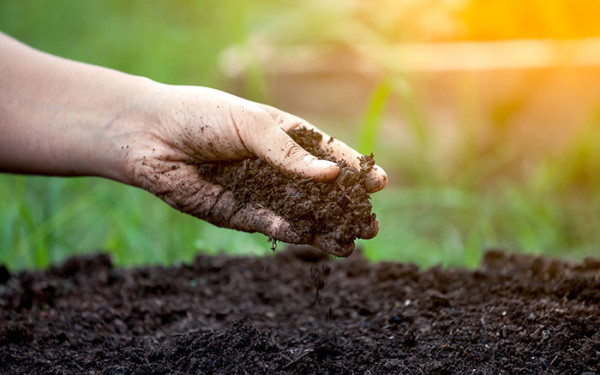Whether you’ve just moved into a home with your first garden or have begun nurturing a few pots on the patio, welcome to the wonderful world of gardening.
It’s a journey of joy, discovery, and connection to nature — but there are a few things I’ve learned over the past 40 years that most people only stumble upon after years in the soil.
Today, I’m sharing 10 of the best-kept secrets that experienced gardeners swear by — the kind of insights that will give you a head start, save you from common mistakes, and help you grow with confidence.
1. Healthy Soil = Happy Plants
The most overlooked part of a garden is also its most important. If your soil is full of organic matter and life, your plants will thrive.
David’s Tip:
Dig in compost, mulch with leaf mould or well-rotted manure, and avoid stepping on borders — compacted soil struggles to breathe!


2. Morning Watering Is Best
It’s tempting to water in the evening after work — but moist leaves overnight are a magnet for mould, mildew, and slugs.
David’s Tip:
Water in the early morning so your plants have a fresh drink for the day ahead, and the foliage has time to dry out.
3. Companion Plants Protect and Support Each Other
Some plants are natural allies. They improve each other’s health, flavour, and resistance to pests.
Try these pairings:
Basil + Tomatoes = flavour boost and aphid protection
Carrots + Chives = fewer carrot root flies
Marigolds in veg beds = whitefly deterrent


4. Pruning Isn’t Scary
So many new gardeners worry about pruning — but done right, it makes your plants stronger.
David’s Tip:
Don’t be afraid to give a bold cut to roses, buddleia, and lavender in spring. You’ll often get better shape and more blooms.
5. Airflow Stops Disease
Crowded beds look lush, but too little airflow invites problems like mildew and rust.
David’s Tip:
Thin out congested areas and train climbing plants upwards. Your garden will stay healthier — and easier to manage.


6. Rainwater Beats Tap Water
Plants prefer rainwater — it’s softer, free of chemicals, and perfect for acid-lovers like blueberries and camellias.
David’s Tip:
Install a water butt and collect rain from your roof or greenhouse. Your plants (and your water bill) will thank you.
7. Weeds Are Telling You a Story
Believe it or not, weeds can give you valuable clues about your soil’s condition. They often grow where the soil suits them best, so spotting which ones are thriving can help you decide on improvements.
-
Dandelions usually appear in compacted or poorly aerated soil. Their deep taproots break through hard ground, so their presence often means the soil needs loosening.
-
Nettles favour nitrogen-rich soils, especially those with plenty of organic matter or past manuring. They’re great for composting because of their high nutrient content.
-
Clover is a bit more complex. It often pops up in low-nitrogen areas, which is why it’s used to restore fertility in poor soils. Whilst it can suggest the soil is well-drained or undisturbed, its main signal is a lack of nitrogen.
David’s Tip:
Treat weeds like little soil scouts. They won’t give you lab results, but they do offer clues. Watch what’s growing and use it to guide your next steps—nature’s leaving you notes all the time.


8. Deadheading Keeps the Show Going
Deadheading isn’t just for tidiness — it encourages more flowers by stopping seed formation.
David’s Tip:
Snip off faded flowers from cosmos, petunias, sweet peas and geraniums, and you’ll double your floral display.
9. Mild Stress Can Trigger Blooms
Some plants bloom better when they think the end is near! It’s a survival instinct.
David’s Tip:
Letting the soil dry slightly between watering or giving a gentle prune can trigger an extra flush of flowers. But go easy — too much stress harms the plant.


10. Your Eyes Are Your Best Tool
No tool beats observation. Spend a little time each day just watching your garden. Early signs of pests or diseases are often subtle.
David’s Tip:
Look under leaves, and scan for nibbled edges, discolouration, or stunted growth. Early action saves time and worry later.
Final Thought: Trust Your Instincts
Gardening is a balance of science and instinct. The more time you spend with your plants, the more confident you’ll become. Even the best gardeners still have things go wrong — but that’s how we all learn.
Want More Secrets Like These?
Sign up to my weekly newsletter for:
- Seasonal gardening tips
- Easy project ideas
- Expert Q&As
- First look at new guides & videos
Sign up here to get growing — and I’ll see you in the garden!

Leave A Comment